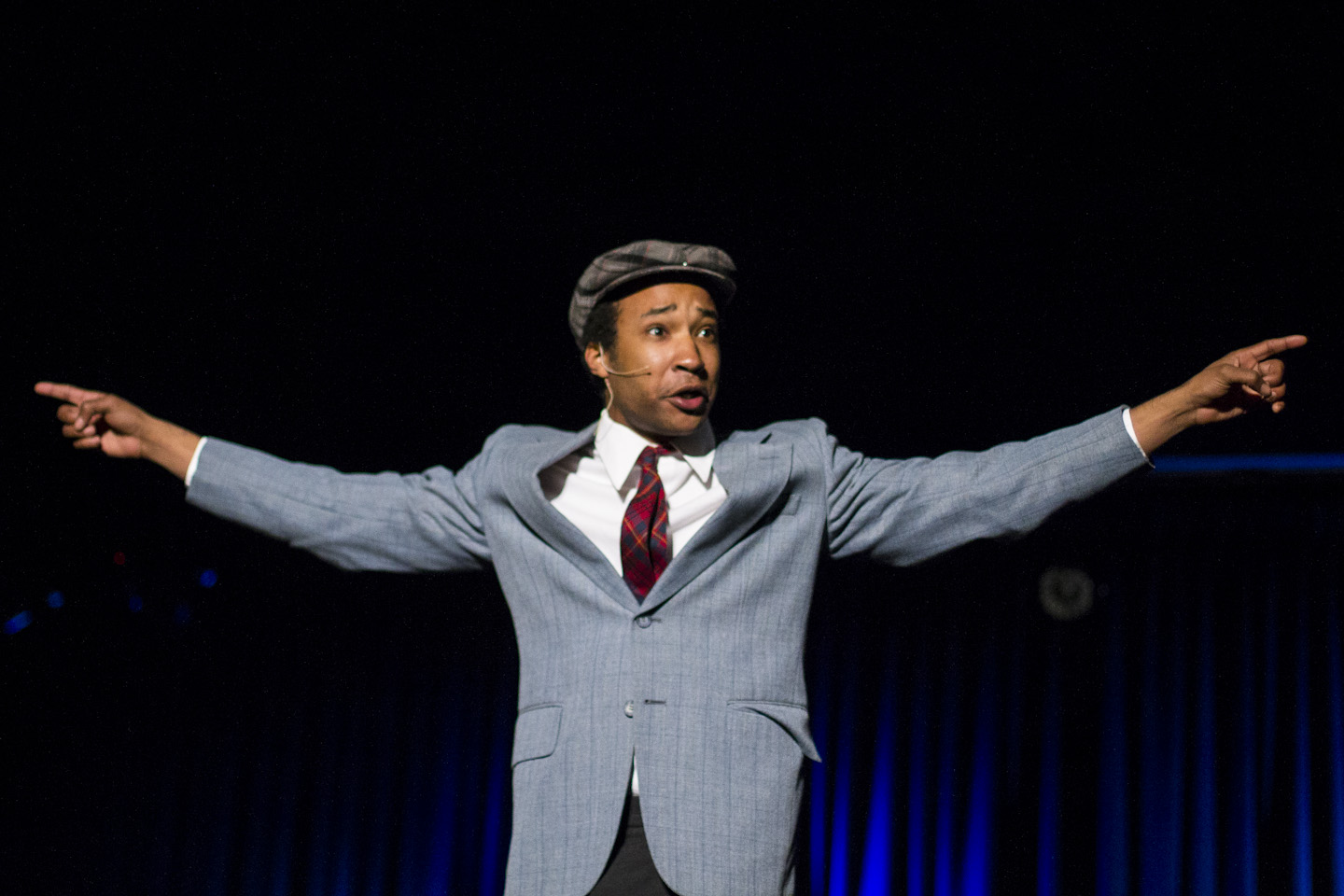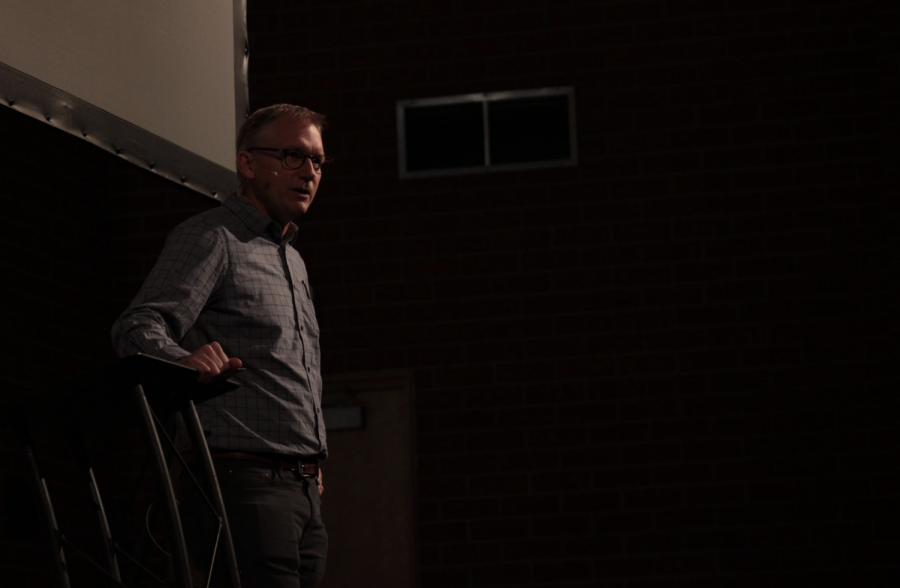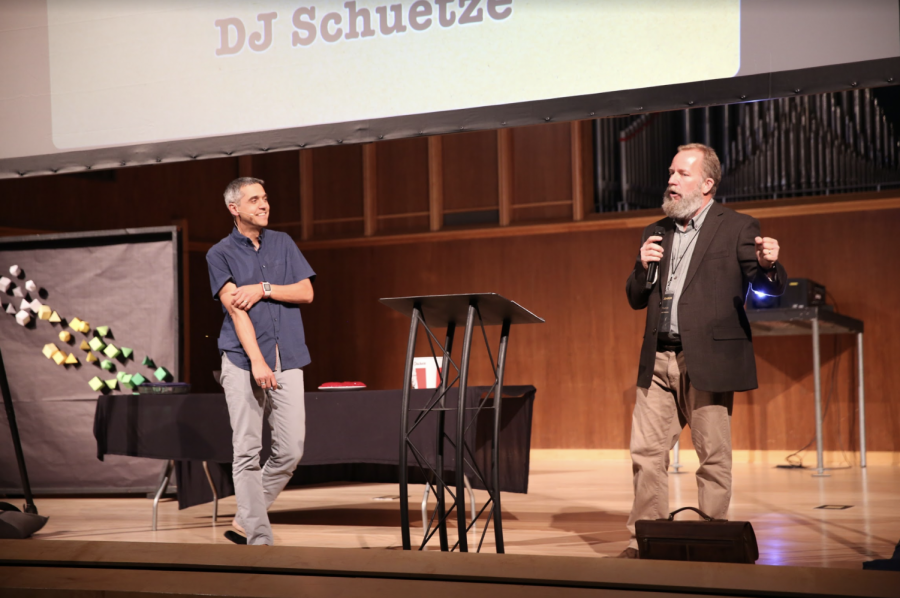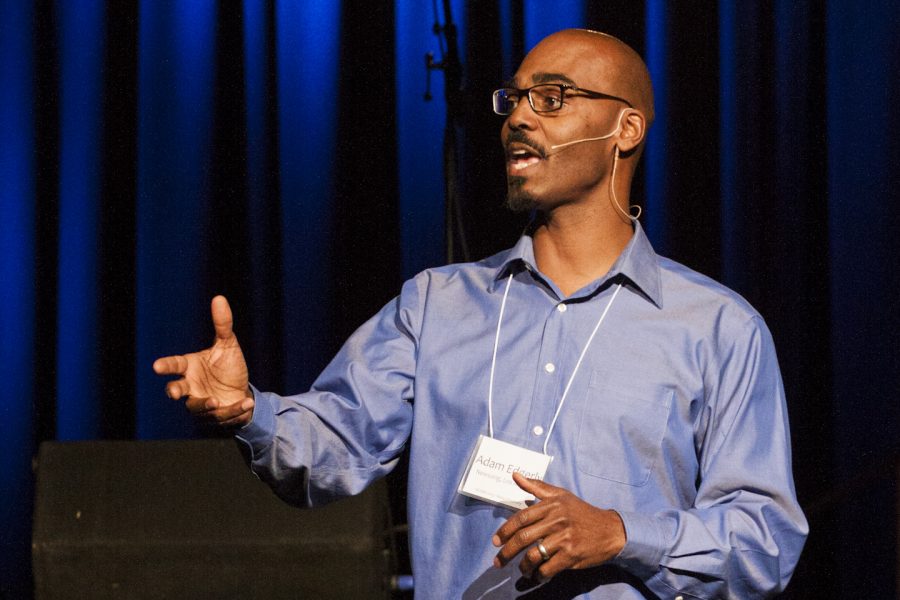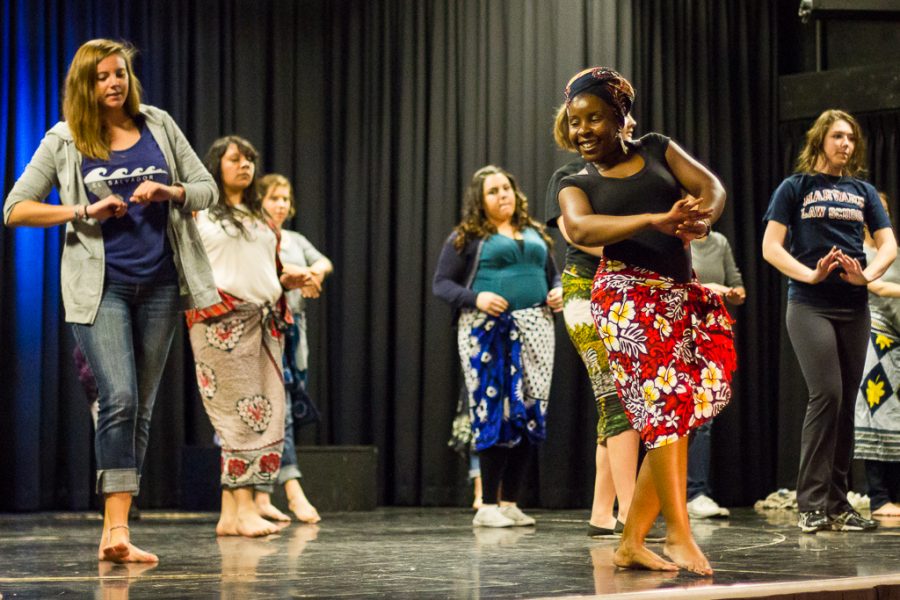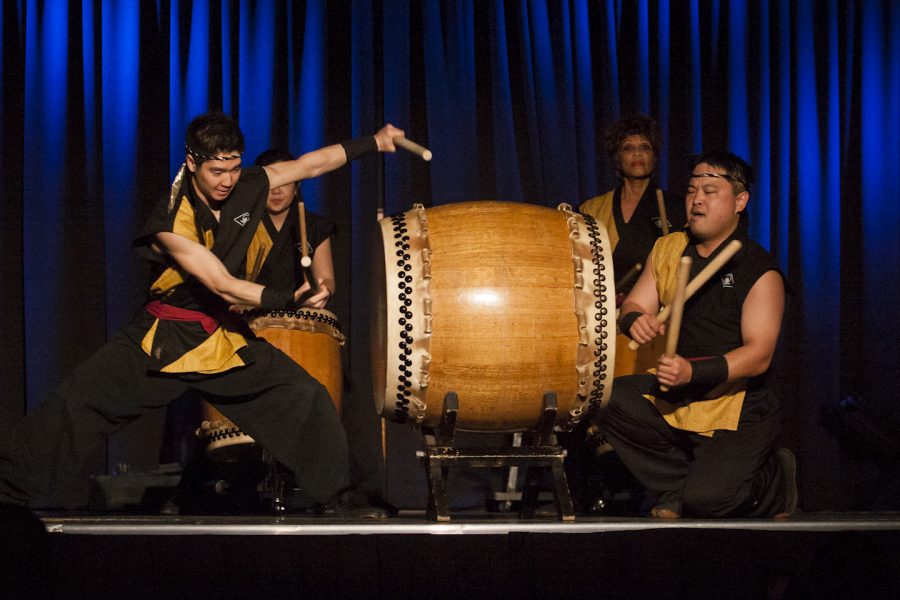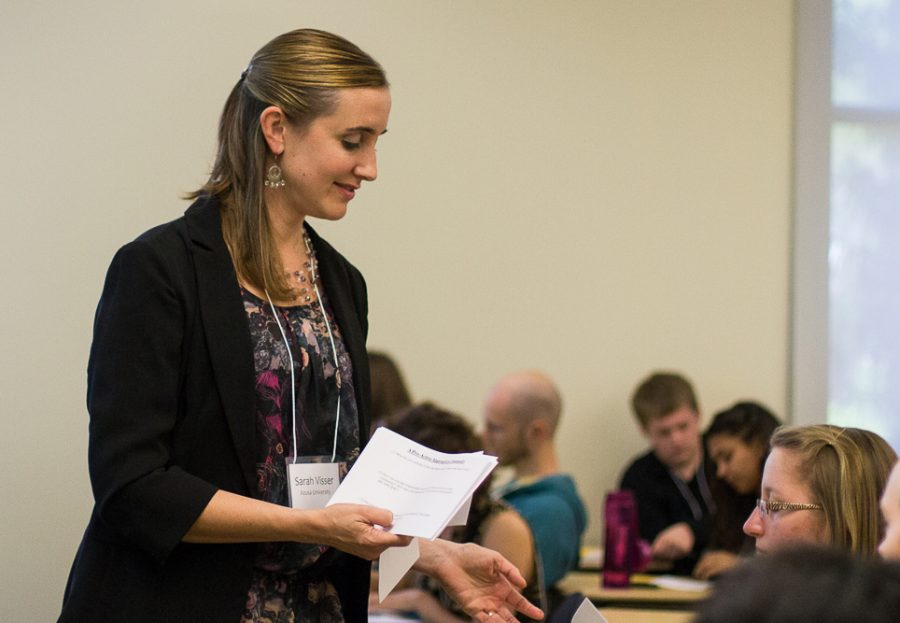During the Student Congress On Racial Reconciliation morning session, those in Sutherland Auditorium had the privilege of observing the production by Will and Company of “Portraits of Courage: Native Visions.” The goal was to experience a portion of a select few Native Americans’ lives and their contribution to society today, according to Shyla.
First, attendees were introduced to Native American Canassatego, of the Iroquois Council of Nations. He explained that at one time, Native Americans loved the Dutch settlers and trusted them; however, when the British settlers came, the natives trusted them and they were betrayed. He informed Benjamin Franklin that if the thirteen colonies would unite, no one could break them, just as a man can’t break thirteen arrows. This showed the Native American influence in the founding of America.
Next, SCORR conference attendees were introduced to a variety of faces, including Weetamoo, who violently opposed being taken over by the settlers and colonizers; Black Elk, who experienced Custer’s last stand; Lyda Conely, the first woman ever allowed into the Kansas bar as a lawyer and Jim Thorpe, whom ESPN named the greatest athlete of the 20th century.
This was done so that we could learn these stories and tell them so that all may know the stories from which we came, according to Collin Cox, who is part of Will and Company.
Then, there was time for questions and answers, where the current state of Native Americans was explored.
When asked if there was anything that gave the performers hope that the state of Native Americans can change, Chris said that he found hope when “at least one person is floored by this information — that an audience member is moved and wants to change their world because of it.”
Shyla said that she derives hope from everyone and from everyone’s appreciation of one another. “The wealth of information is the basis of hope,” she said.
Collin said that the attendees’ willingness and acceptance to have the conversation about racial reconciliation in the first place brought him hope.
“You seem to want to take this issues on, challenge them, that’s the hope. That is the idea of what you stand for as Christians…and bring a Christian voice to all communities and all people,” Collin said. He commended attendees for wanting to spread Christian ideals of equality, even though he isn’t a Christian himself.



